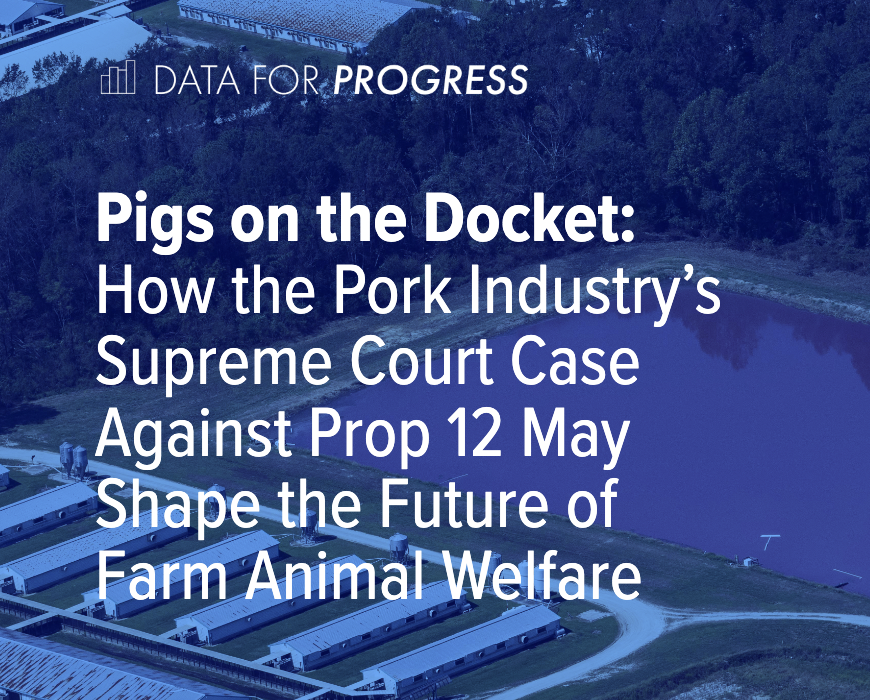Pigs on the Docket: How the Pork Industry’s Supreme Court Case Against Prop 12 May Shape the Future of Farm Animal Welfare
By Emily Tian
On October 11, the Supreme Court heard oral arguments for the pork industry’s case that California’s farm animal confinement law should be ruled unconstitutional. National Pork Producers Council (NPPC) v. Ross is the most significant legal challenge faced by farm animal welfare advocates, for whom the passage of Proposition 12 was a hard-fought victory.
The Farm Animal Confinement Initiative (also known as Proposition 12, or Prop 12) is one of the strongest legal protections of animal welfare in the country. It sets in place baseline space requirements for egg-laying hens, veal calves, and pregnant female pigs. Under the law, these animals cannot be kept in confinement conditions which prevent them from lying down, standing up, fully extending their limbs, or turning around freely. Pregnant sows must also be guaranteed at least 24 square feet of floor space — no more than the size of two exercise mats — compared to the 14-square-foot gestation crates which are commonplace in the industry.
Prop 12 enjoys widespread popularity among California voters, even given political and demographic differences. A strong majority — 82 percent — of likely voters in California support Prop 12, according to recent Data for Progress polling, including 90 percent of Democrats, 79 percent of Independents, and 71 percent of Republicans.

